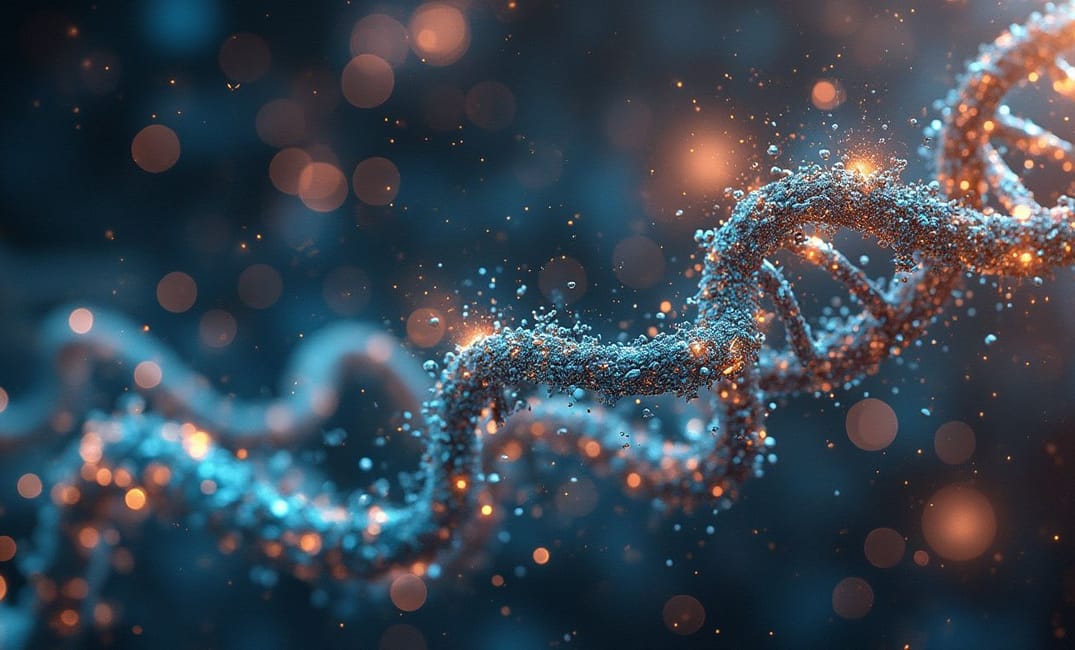Introduction: Understanding the Self
Human identity is a sophisticated confluence of genetics, culture, and individual choices. It shapes the foundation upon which societies build and define themselves. As we venture into the intricacies of identity, we uncover the interplay of nature and nurture, the impacts of socio-political constructs, and the choices that allow for self-definition within collective narratives. This entry offers a glimpse into the diverse elements that compose human identity and the everlasting quest for belonging and self-understanding.
The Genetic Blueprint: Nature's Contribution to Identity
The Human Genome: Diversity Encoded in DNA
- Understanding Genetic Heritage: Every individual carries a unique set of genes inherited through generations. This genetic makeup not only influences physical characteristics, such as eye color and height but also predispositions to certain traits and illnesses.
- Epigenetics: Beyond DNA: The study of epigenetics reveals that environmental factors can cause genes to be switched on or off, effectively shaping identity beyond the static blueprint of DNA. Factors like diet, stress, and experiences trigger epigenetic changes, leaving a lasting imprint on posterity.
- The Role of Genetic Ancestry: Genetic studies allow individuals and communities to trace their ancestral roots, fostering connections to cultures and histories that have long served as identity pillars. This ancestral knowledge can empower diasporic identities by reclaiming lost narratives.
Biological Variability and Societal Constructs
- Race vs. Genetics: While genetic differences among human populations are minor, society has historically constructed categories of race that significantly impact identity perception and treatment. Understanding that race is a social construct, not a biological inevitability, is crucial in dismantling systemic discrimination.
- Biological Sex and Gender Identity: Human biology presents a spectrum of characteristics beyond the binary conception of male and female. This biological understanding challenges traditional gender roles, thereby enriching discussions around gender identity and expression.
Cultural Threads: Weaving Identity Through Community
Cultural Heritage: The Collective Memory
- Language and Cultural Preservation: Language offers a vital link to cultural identity and collective memory. Dialects and indigenous languages, often endangered, serve as vessels of unique worldviews and historical continuity.
- Religious and Philosophical Beliefs: Religion and philosophy provide frameworks that shape ethical perspectives and behaviors. They nurture communities by offering shared rituals, stories, and values to anchor identity.
Cross-Cultural Exchange: Enriching Identity
- Globalization and Hybrid Identities: The connectivity of human society through globalization facilitates cross-cultural interactions, leading to hybrid identities. These multifaceted identities blend elements from various cultures, generating novel forms of self-expression.
- Diasporas and Cultural Adaptation: Migration creates diasporic communities that navigate dual identities—retaining cultural roots while assimilating into new societal landscapes. This dynamic adaptation process enriches cultural diversity within host countries while preserving heritage links.
Socio-Political Influences: Identity on the Global Stage
- National Identity and Citizenship: National identities are constructed through shared history, language, and values. Citizenship policies affect individual and collective identity, shaping perceptions of belonging and allegiance.
- Postcolonial Identities and Reclamation: The legacy of colonialism continues to influence contemporary identities as previously colonized peoples seek to reclaim autonomy and cultural integrity. Postcolonial narratives strive to redefine identity free from historical subjugation and embrace indigenous perspectives.
The Power of Choice: Self-Determination and Identity
Personal Identity: The Singular Journey
- Individuality and Self-Expression: Personal identity is an ever-evolving narrative shaped by conscious choices, personal experiences, and aspirations. People craft their identities through relationships, hobbies, career paths, and creative outlets.
- Identity Transformation over Time: Personal growth often involves identity transformation, as individuals adapt to changing life stages and circumstances. This fluidity in self-perception underscores the adaptability of identity beyond socio-cultural or genetic boundaries.
Identity Politics: Negotiating Space and Rights
- Empowerment Through Identity Politics: Movements like feminism, LGBTQ+ rights advocacy, and others demonstrate the powerful role of identity politics in advancing societal change. By claiming space for marginalized identities, these movements foster inclusivity and equity.
- Challenges of Identity Politics: While identity politics have catalyzed significant progress, they also raise complex issues surrounding intersectionality, representation, and the potential for division. Balancing collective identities with individual diversity remains a dynamic challenge within pluralistic societies.
The Future of Identity: Challenges and Opportunities
Technological Impact: Redefining Connection and Expression
- Digital Identity and Online Communities: The rise of digital technologies creates new avenues for identity exploration and community-building. Online platforms enable individuals to connect globally and express identity facets often constrained in physical environments.
- Virtual Realities and Identity Experiments: Advancements in virtual reality provide opportunities for individuals to experiment with identities in simulated environments. Such immersive experiences can deepen empathy and broaden understanding of diverse perspectives.
Ethical Considerations: Privacy and Identity
- Data Privacy and Surveillance: As digital footprints expand, ethical concerns regarding privacy and the commodification of identity data rise. Balancing the benefits of connectivity with preserving personal privacy is a critical consideration in modern identity formation.
- Algorithmic Bias and Representation: Algorithms in technology shape digital interactions and can reinforce biases in identity portrayal. Ensuring fair representation requires vigilance and intentional efforts to build inclusive technological systems.
The Ever-Evolving Self: Embracing Complexity
- Identity as a Dynamic Process: The future of human identity embraces complexity, acknowledging that identities are not static but evolve with time and context. Cultivating spaces that encourage self-reflection and growth is essential for nurturing inclusive and compassionate societies.
- Cultural Fluidity and Unity in Diversity: By celebrating cultural fluidity and fostering unity through diversity, societies can build enriched communities where multiple identities coexist harmoniously, propelling humanity towards more just and empathetic futures.
Conclusion: A Mosaic of Human Identity
Human identity is a mosaic of intertwined elements—biological, cultural, and personal. It is a testament to humanity's rich diversity and adaptability, continuously shaped by past legacies and future possibilities. By embracing this complexity, societies and individuals alike can navigate identity's multifaceted nature, forging pathways of understanding, equity, and connection.
"In every heartbeat and every choice lies a universe of identity—a mosaic both fragile and resilient, echoing the endless journey of self and society, ever seeking its place among the stars."
SOCIO-POLITICAL, CULTURE, EVOLUTION, GENETICS, HUMAN IDENTITY, SELF-DETERMINATION, DIVERSITY

